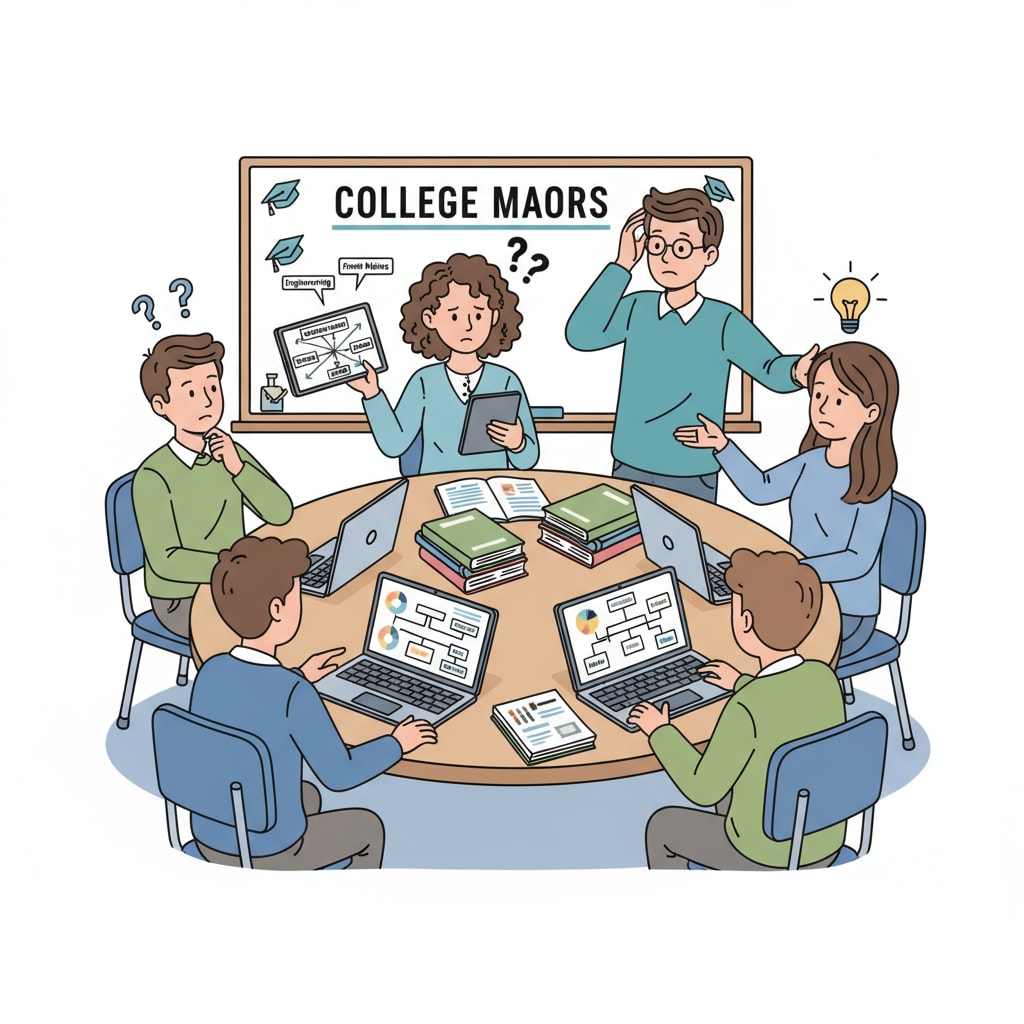Career direction, interest confusion in major selection often pose significant challenges for high school students on the verge of entering college. As they stand at this crucial crossroads, the task of choosing a college major can be both daunting and overwhelming. The decision not only impacts their academic journey but also sets the foundation for their future careers.

The Contradiction between Interest Exploration and Long-Term Career Planning
High school students are at a stage where they are just beginning to explore their interests. However, when it comes to choosing a college major, they are also expected to have some inkling of their long-term career paths. This creates a contradiction. On one hand, they may have a wide range of fleeting interests, which could be influenced by various factors such as current trends, peer choices, or family expectations. On the other hand, a college major is a stepping stone to a particular career, and a hasty decision based on surface-level interests might lead to future regrets. For example, a student might be attracted to a popular major like computer science because of the high job prospects, but if they don’t have a genuine passion for coding and problem-solving, they may struggle during their college years. Educational Psychology on Britannica

Distinguishing between Superficial Interests and Deep Passions
It’s essential to differentiate between superficial interests and deep passions. Superficial interests are often short-lived and may be more about the novelty or external appeal of a subject. For instance, a student might be interested in photography because they like the idea of taking beautiful pictures, but they may not be willing to put in the time and effort to learn about the technical aspects, such as lighting, composition, and post-processing. In contrast, deep passions are accompanied by a strong sense of commitment and a willingness to delve deeper into a field. A student with a deep passion for literature will not only enjoy reading books but also be eager to analyze and discuss literary works, study different literary theories, and perhaps even pursue writing projects. Career Guidance on Wikipedia
To overcome the career direction and interest confusion in major selection, students can take several steps. First, systematic exploration is crucial. This involves researching different majors, understanding the curriculum, job prospects, and the skills required. Second, practical experiences such as internships, volunteer work, or extracurricular activities related to potential majors can provide real-world insights. Finally, self-reflection is key. Students should regularly ask themselves what truly excites them, what they are good at, and what kind of lifestyle they envision for themselves in the future.
Readability guidance: By using short paragraphs and lists, we can better summarize key points. For example, under each H2, we can present a list of relevant ideas. Also, by controlling the proportion of passive voice and long sentences, and adding transition words like ‘however’, ‘therefore’, ‘in addition’, ‘for example’, ‘as a result’ throughout the text, we can enhance the readability and flow of the article.


